What Are Our Strategic Objectives in Afghanistan?
Since reading the interview with Anthony Cordesman in the Times of London this morning I’ve been doing the mental equivalent of sputtering. I honestly don’t know how to respond. I’m generally favorably disposed to Mr. Cordesman but I’m having some difficulty in relating the numbers that are being tossed out, the political realities in the United States and with our NATO allies, the means that are being advocated, and our strategic objectives in Afghanistan.
So, for example:
The United States should send up to 45,000 extra troops to Afghanistan, a senior adviser to the American commander in Kabul has told The Times.
Anthony Cordesman, an influential American academic who is a member of a team that has been advising General Stanley McChrystal, now in charge of Nato forces in Afghanistan, also said that to deal with the threat from the Taleban the size of the Afghan National Army might have to increase to 240,000.
and this
The US reinforcements already approved by Mr Obama include 8,000 Marines of the 2nd Marine Expeditionary Brigade who have arrived in Helmand province, replacing the British troops in the south of the province, and 4,000 US Army soldiers from the 5th Stryker Brigade, who are also arriving in the region.
Mr Cordesman appeared to confirm the strategy expected to be outlined by General McChrystal relating to the Afghan National Army. He says that the existing plan to increase numbers to 134,000 soldiers is inadequate. He says that it should be doubled to 240,000 by 2014, and the Afghan National Police should rise from 82,000 to 160,000.
To reach such levels, however, Nato would need to contribute thousands more troops to train the Afghans.
As I wrote in comments yesterday the number of security personnel required for a counter-insurgency operation in Afghanistan would be at the very least something like 325,000 and possibly as many as 820,000. The lower number assumes that the activity can be limited to the Pashtun areas of Afghanistan and that the border with Pakistan can be closed, assumptions which I think are very strong, indeed, by which I mean I don’t think they can be made.
And as I’ve documented previously we spend about three times as much for every soldier we deploy in Afghanistan that we’ve spent on deploying the same soldier in Iraq. Consequently, to deploy the size of force being contemplated in Afghanistan we’d spend three times what we’re spending in Iraq, which has long been challenged, including by the sitting president, as a waste of money. In addition to that we would need to spend at least $10 billion per year in aid to Afghanistan, a sum roughly equal to the amount we’ve given to the countries receiving the largest amount of our foreign aid, Israel and Egypt. That amounts to roughly 30% of Afghanistan’s GDP, a staggering sum.
The new head of the British army has estimated that our commitment to Afghanistan could be as long as 40 years. That’s not completely surprising since our commitments to Germany and Japan have been that long and more. However, Germany and Japan are not Afghanistan, a poor landlocked country with a tiny GDP and no strategic significance as long as it’s not hosting terrorist training camps.
In 2003 our strategic objectives in Afghanistan were six:
- Eliminate the Al Qaeda network in Afghanistan.
- Convince or compel the Afghan Taliban to end its support for Al Qaeda.
- Demonstrate that the United States is not at war with the Afghan people or Islam.
- Demonstrate U. S. resolve in the war on terrorism.
- Build international support for the war in Afghanistan.
- Stabilize Afghanistan following the fighting.
At the time I argued against these objectives on the grounds that 1) and 2) weren’t worth doing in the light of the ease of the network decamping into Pakistan, the longer we spent in-country the more difficult 3) would become, 4) could be achieved by other means, 5) had probably already been achieved to as great a degree as possible, and 6) was probably not possible, at least not in a timeframe and at a cost acceptable to the American people, among others.
Now we have accomplished 1), 2), and 4) and the remaining objectives are little better off than they were in 2003. I would very much like to see a statement from the Obama Administration of its current strategic objectives in Afghanistan and how the tactics being used relate to those objectives.

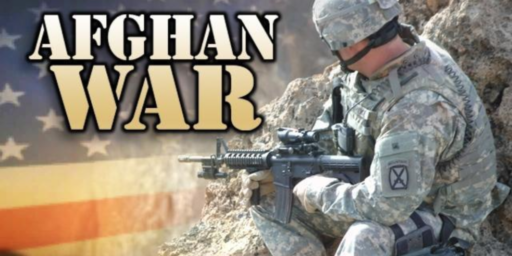
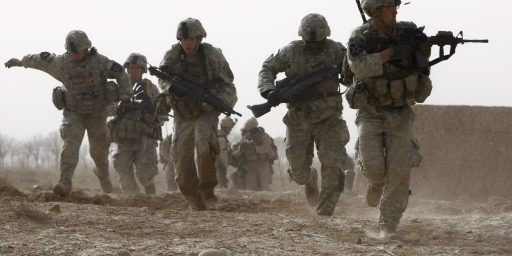
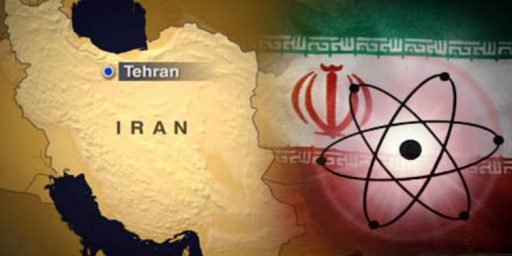
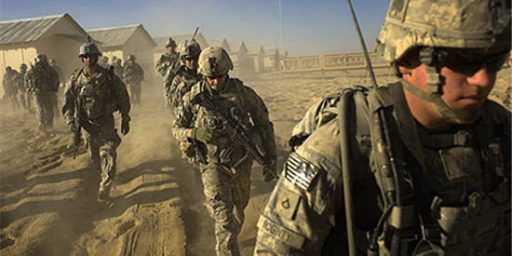
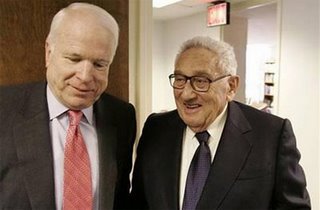
If Number 2 is:
I’m not sure what you’re talking about. There is no evidence to suggest that the Taliban is not supporting Al Qaeda.
Being a cynic,he goal is to tread water until after the election is in place and secured -then we run like hell. The COmmander in chief’s heart isn’t in fighting Islamic radicals – He needed some pretense since he was so wrong on Iraq.
NDU is predicting a civil war in Iraq.
http://smallwarsjournal.com/blog/2009/08/civil-war-in-iraq/
Did you see Dr. Finel’s post at AM? The part that really struck me was that the Taliban took over and ran the country with about 30,000 poorly trained fighters and a budget of,maybe, $1 billion. We are closing in on $100 billion a year and over 100,000 soldiers and it would be difficult to claim we are winning. I have been a long time COIN supporter, but I am beginning to question whether we can really accomplish nation building in Afghanistan w/o a budget breaking commitment, and even then I am not certain it is possible.
Steve
Triumph, just because the same word is used for two different things doesn’t mean they’re the same thing. The Afghan Taliban isn’t supporting much of anything right now. The Pakistani Taliban, on the other hand, is hosting and supporting both the Afghan Taliban and Al Qaeda.
Dave:
I had the same reaction to the Cordesman piece. Summarizing: WTF?
I’m not sure all is lost. There may be a winning strategy here somewhere. But if the only effective strategy we have requires a huge increase in troops then yes, we’re done.